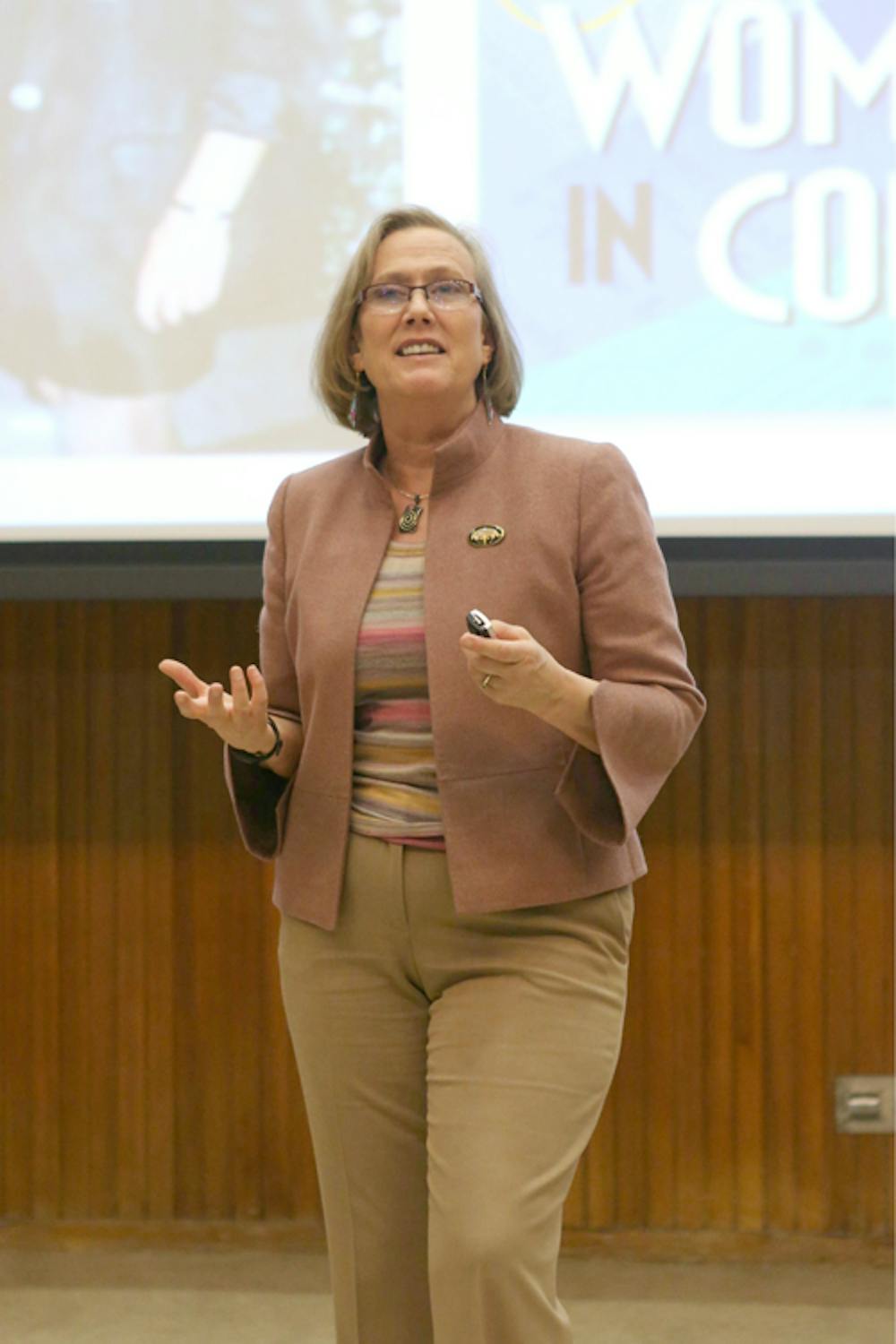Telle Whitney, president and CEO of the Anita Borg Institute for Women in Technology, tells students to dream big
Telle Whitney was a theater major before discovering her interest in technology. Whitney went on to get her Ph.D from Caltech. (Becca Tabor | THE BEACON)
By Lydia Laythe, Staff Writer laythe16@up.edu
College students are constantly pushed to decide what they're going to do with their life after graduation and what their purpose will be.
Last Thursday, March 21, the Shiley School of Engineering hosted a lecture, "Lessons Learned: The Journey of One Technical Woman," by Telle Whitney, president and CEO of the Anita Borg Institute for Women and Technology. Whitney spoke about the many lessons she learned during her journey to find her purpose.
"Push your limits," Whitney said, "Even if it doesn't work out, you take away the lessons that you've learned."
Whitney never considered math or science when she began studying at the University of Utah, where she began as a theater major, switched majors a couple times and considered dropping out of school. After two years and no success in finding her life's purpose, Whitney took an interest test. When the results came back, computer technology was at the top of her list.
"I fell in love," Whitney said. "I found my passion."
Whitney received her bachelor's degree in computer science from University of Utah and, then earned her Ph.D from Caltech.
Whitney held senior management positions at Malleable Technologies and Actel Corporation and held many senior positions. Her experiences taught her valuable lessons she wanted to share.
Whitney repeatedly stressed the importance of diversity in gender and culture. She also encouraged women to be more assertive when making decisions and requests.
"Understand that nobody knows what you want until you tell them," Whitney said.
Whitney gave five lessons she learned in the computer science field: take risks, it takes a village, ask for what you want, take your visibility seriously and dream big.
Sharon Jones, Dean of the Shiley School of Engineering, was happy with the lecture.
"I think her message goes beyond just women," Jones said. "[The lessons she taught] go beyond profession. They go beyond gender."
But the question that stumped everyone, Whitney said, was Why are there still so few women in computer science?
Balakrishnan Srinivasan, Shiley School of Engineering entrepreneur in residence, said part of the problem was exposure.
"If you don't know about something, you'll never know if it's interesting or not," he said.
Whitney's father was a lawyer, her mother a history teacher and her stepmother was a piano teacher. Because she wasn't exposed to math or science-related careers, she didn't see them as viable options.
Whitney said she excelled in math early on but was never encouraged to pursue it.
"Around my junior year, I stopped taking math because [I thought] it would not be good for anything," she said.
Junior Bethany Nemeth, an electrical engineering major, said Whitney's story was encouraging and her advice was practical.
"It's scary going out into industry after you're just doing math problems in class," Nemeth said. "I think her points were really valid."
Nemeth said her favorite lesson was dream big.
"A lot of people are scared to go after what they really want to do or what they think is really admirable or inspirational," Nemeth said. "If you don't try for something out of your reach, you're never going to get even close to it."








